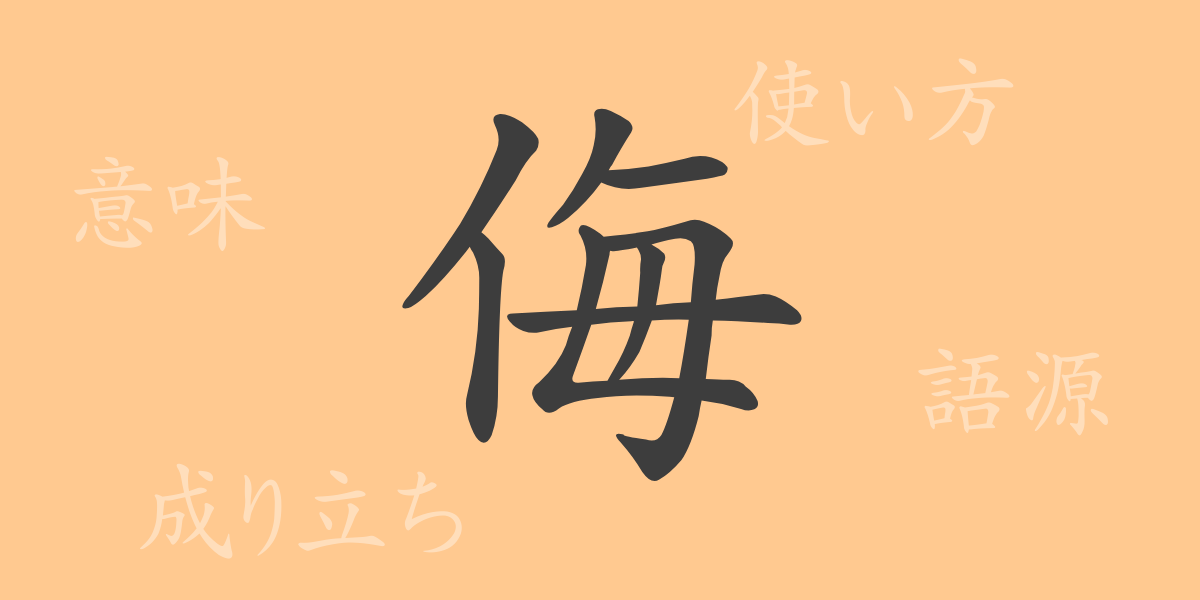Each character in the Japanese language carries a deep history and meaning behind its formation. The 常用漢字 (じょうようかんじ, Jōyō Kanji) “侮” (ぶ, bu) is no exception. While it may not be frequently used in daily life, “侮” (ぶ, bu) holds a strong message, and its usage requires caution. This article will delve into the etymology of “侮” (ぶ, bu), its meaning, usage, readings, and even idioms and proverbs that include “侮” (ぶ, bu).
Origin of 侮 (ぶ, bu)
The kanji “侮” (ぶ, bu) is a character that originated from ancient China. It is said to be formed from the combination of “亡” (ぼう, bō), meaning “to lose” or “to be absent,” and “女” (じょ, jo), meaning “woman.” This combination implies the meaning of belittling or losing value. The character evolved to represent an attitude of looking down on people or things.
Meaning and Usage of 侮 (ぶ, bu)
“侮” (ぶ, bu) means to belittle, look down upon, or not recognize the value of someone or something. This kanji is often used in negative contexts, particularly when dismissing someone’s dignity or achievements. Its usage requires special attention, as it can be perceived as a lack of respect towards others.
Readings, Stroke Count, and Radical of 侮 (ぶ, bu)
The kanji “侮” (ぶ, bu) has multiple readings in Japanese.
- Readings: The on’yomi (音読み) is “ブ” (ぶ, bu), and the kun’yomi (訓読み) are “あなど.る” (あなどる, anadoru) and “あなず.る” (あなずる, anazuru).
- Stroke count: “侮” (ぶ, bu) has 9 strokes.
- Radical: The radical of “侮” (ぶ, bu) is “亻” (にんべん, ninben).
Idioms, Proverbs, and Phrases Using 侮 (ぶ, bu)
There are several idioms, proverbs, and phrases that include “侮” (ぶ, bu), each with its unique meaning.
- 侮辱 (ぶじょく, bujoku): An act of contempt that damages someone’s honor.
- 蔑視 (べっし, besshi): To look down on someone or something and regard it as worthless.
- 愚かにも侮れぬ (おろかにもあなどれぬ, orokanimo anadorenu): A proverb that teaches not to underestimate someone’s true ability or value, despite appearances.
Summary of 侮 (ぶ, bu)
The kanji “侮” (ぶ, bu) is a character that demands careful use. Insulting someone is a serious act that can damage their dignity, reminding us of the power of words. However, idioms and proverbs containing this kanji often impart lessons about human relationships and social life, showcasing the richness and depth of the Japanese language. Valuing each word and communicating with respect for others is the foundation of building a better society.

























